You are sitting at your computer staring at a blank page. Where do other writers get their story ideas? Why can’t I think of anything to write about?
You want to be a writer but frankly, it’s hard.
The truth is blockbuster story ideas are all around you. The trick is to find those ideas. Then turn them into blockbuster stories.
First, you need a way to capture those magical moments of inspiration. Those ‘ah ha’ moments when an idea pops into your head. If you don’t write it down quickly the idea will float away and maybe be lost forever.
You also need a way to organize your ideas into blockbuster stories.
A storyboard is a perfect place to store all those bits and pieces of inspiration. It’s a laboratory where you can experiment with different characters, settings, and plots.
Download: How to Start A Creative Writing Storyboard
Your storyboard is a place you can always go to when you’re stuck for fresh ideas.
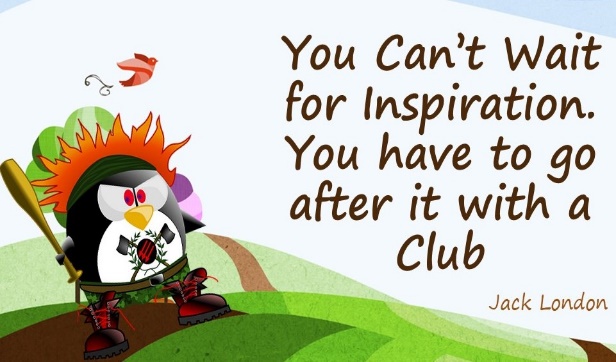
Let’s chat about what makes a story. A story has three parts: characters, settings, and plots.
Let’s Get Started in Our Search for Story Ideas.
Finding Character Ideas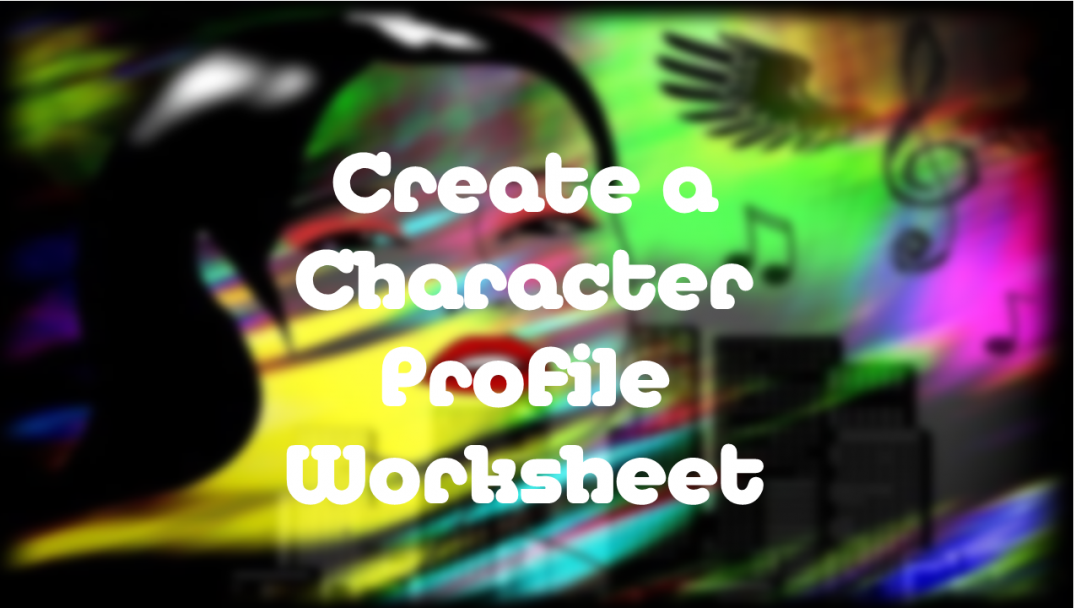
Remember stories are about people.
Here are some ways to find unique and interesting characters to create your stories around.
Download our Free Character Profile Worksheets
1. Observe People to Find Story Ideas
Try going to a shopping center or a hotel lobby. Observe people. People-watching is a great way to create character profiles.
Write down what you see. The old man with whiskers. The young couple sitting together.
Describe their physical appearance. Note their body language. Imagine what they’re thinking and feeling.
Now, go put the character profiles in your storyboard for later, when you need to add a character to your story, they will be there, right on your storyboard.
 2. Family Photos
2. Family Photos
You might consider looking at family photos. See how the people in your family have changed.
Add the photos to your storyboard. When you need a character of a certain age look at those pictures.
What are the characteristics of your brother or sister at age 10 or age 30? Use those ideas when you need a character of a certain age.
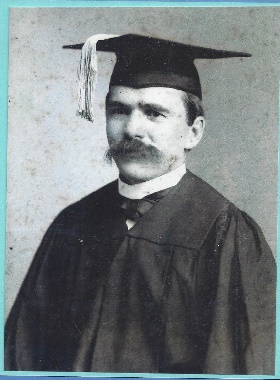 3. Ask Older Relatives About Your Ancestors.
3. Ask Older Relatives About Your Ancestors.
Most families have an interesting relative or two.
I have a grandfather who was a dashing young man. He was part of the security for President-Elect Garfield. My grandfather was there when a man attempted to kill the president in Jacksonville Florida. I have several pictures of him as a young man.
I knew this grandfather in his old age. He was still dashing. What a magnificent character to write about.
Here’s something else to try
4. Ask Friends for Story Ideas
Friends are usually more willing to give you intimate details about their lives.
Ask questions:
- How they met might make a great romance story.
- What do they believe and why?
- What are their dreams?
- What motivates them?
- What inspires them?
- Who is their favorite hero?
Be interested in the people around you. Learn from them.
Intimate details add depth to your characters.
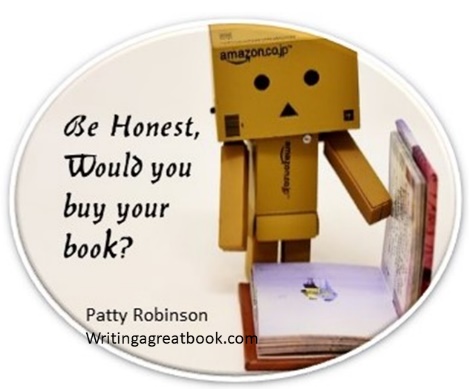
 5. Talk to Strangers for Story Ideas
5. Talk to Strangers for Story Ideas
Have random conversations with strangers. The more people you are exposed to the more ideas you’ll find.
I’m not super shy, but I don’t like talking about myself. So, I have learned to ask open-ended questions.
I find interesting questions lead to interesting answers. Listening is the art of talking without worrying about what you are going to say next.
Ask about:
- Their religion
- Their politics
- Their hopes and dreams
- How they feel about family
- What books and movies do they like?
The trick is not to condemn their answers. You are looking for different kinds of people to become unique and interesting characters in your books. So, accept their answers no matter how weird or quirky. You want to know about their idea of life. Their reality.
Let their ideas become the foundation for a unique character in your story. You already know what you think. You want to understand how they perceive the world.
You are looking for a different point of view.
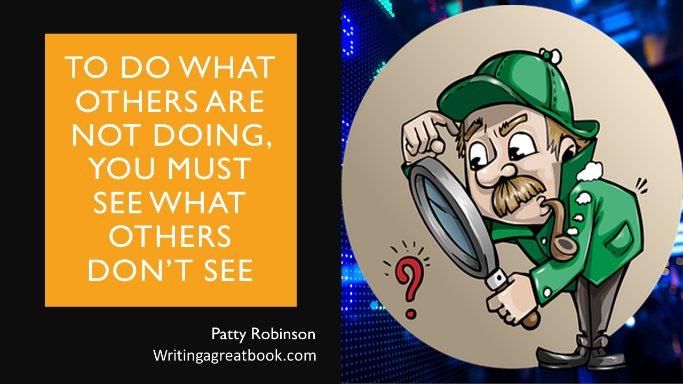
 6. Watch TV or Movies
6. Watch TV or Movies
If someone asks, tell them you’re working.
You want to find characters you can duplicate. Watch with a pen and paper or iPad close by. You want to write down ideas while they are fresh.
- What are the character’s goals?
- What motivates them?
- Observe facial expressions
- Notice gestures that show certain emotions
7. Listen to TV and Movies to Improve Dialog
Here’s another reason to watch TV or movies. Listen to the dialogue.
Screenwriters are professional dialogue creators. These writers make a living coming up with great dialogue.
Learn from them. Write down the dialogue that impresses you in your journal.
See our post on Starting a Writing Journal
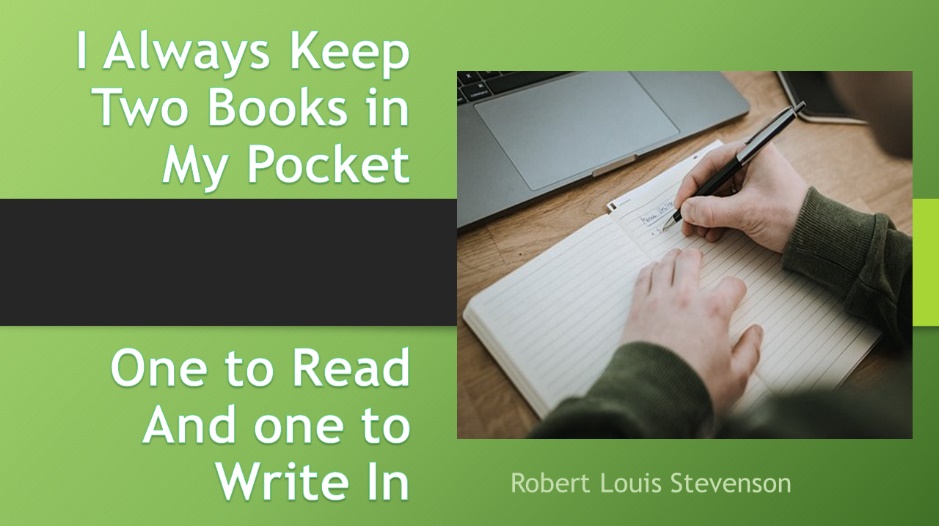
Here are a few more things to keep in mind when looking for story ideas.
8. Eavesdrop for Story Ideas
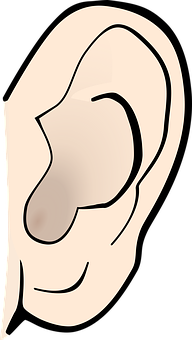
This may feel a bit creepy at first. But learn to listen with your writer’s ear. Not just what they say, but the words they use. Listen to the unique rhythm of their speech, the pauses, and the cadence.
Do they use long sentences and flowery language? Is their speech sharp and crisp? Are there words educated or do they use a lot of slang?
Write down the pieces of speech when they are still fresh in your ears.
9. Names
I’m always looking for unusual names. We write speculative science fiction. We need names for both people and places so when I hear an unusual name, I add it to a list I keep on my storyboard.
Stick with me here if you want to know all 33 secrets
Setting Story Ideas
Settings can contribute greatly to your stories.
Practice seeing the world through a writer’s eyes. Notice the little details. Include as much sensory information as you can.
 10. Look Around You for Story Ideas
10. Look Around You for Story Ideas
Take a walk. What do you see? Observe the changes in nature. Look at the sky and see the flowers, the pavement, the rocks, and the trees.
Describe your neighborhood. Describe the weather. Describe the colors, textures, and smells. Look for the details.
See the surprising details that are not quite what you imagined. Stop seeing shadows is just gray. What colors are shadows really, a little yellowish or greenish? Great writers get specific.
Describe the sounds you hear (the birds, the cars, the wind). Breathe the air. What does it smell like? What does it feel like on your skin?
Details are the secret ingredient for memorable stories
Write down the details that will make your setting come alive for your readers. Experiment with describing the world around you
How would you look at the world from a different point of view? (From up in the sky, or from a child’s point of view).
Details and tidbits of description give your story authenticity.
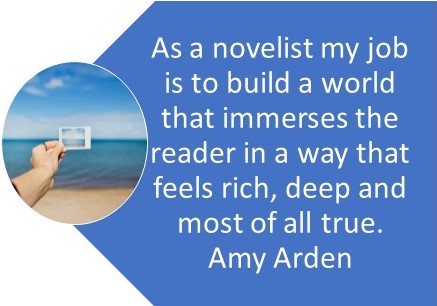
Don’t stop, keep reading for more ideas.
11. Use Pictures for Story Ideas
Clip pictures from magazines or print them from the Internet. Look for places that might make good settings.
Put the pictures in your storyboard.
Take out your camera or phone. Take pictures. You will see the world differently from behind the lens.
Having pictures to look at will inspire you to write better settings.
Look at paintings. Noticed how artists use light and shadow. See how the colors blend.
To become a great writer, notice the details and then find the words to describe what you see, hear, smell, taste, and touch.
 12. Search the Internet
12. Search the Internet
The Internet is a fabulous place to find exotic settings.
Knowing you could draw material from anywhere should inspire you.
Research historical settings. How did people dress? What vehicles did they drive? What kind of technology or weapons that they use?
Check Out These Websites for Story Ideas
Research settings for historical fiction at NowNovel
World-building for science fiction can be a real challenge. These websites might be helpful:
13. Travel
Experience new places. You can do this right where you are. Go to the zoo or a museum, any place you have never been.
Go to a factory or store. Tell them you are researching their kind of business for a story you are writing. You might be surprised how willing people are to talk to you about what they do.
If you can travel to new places, wonderful. Observe the lifestyle. Eat new and exotic food. Immerse yourself in the culture.
We’re only halfway, see what other ideas we have for you.
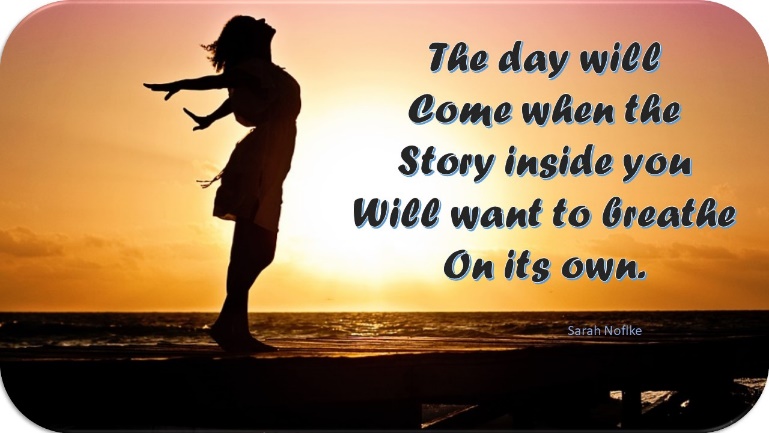
Story Ideas
You want a story that will keep your readers glued to your pages. Something exciting and interesting. Here are some places to look.
 14 Newspaper Headlines
14 Newspaper Headlines
Newspapers can be a gold mine for mystery and crime writers. Search for story ideas or find technical details needed to flesh out your story.
News stories can range from bizarre and absurd, to poignant and political. Skim the headlines for compelling human-interest story ideas.
Use idea-generating tools from companies like:
https://www.servicescape.com/writing-prompt-generator
ai-writing-tools-for-creative-writing-and-fiction
Read the top 100 newspapers at www.dotrefdesk.com
15. Historical Newspapers for Story Ideas
What a wonderful resource for intriguing stories. Discover obituaries, marriages, and articles from the past.
These resources are full of story ideas.
www.chroniclingamerica.loc.gov
Check out world facts for an international thriller at:
 Here are a few more ideas
Here are a few more ideas
16. Your own experience
Do something new and exciting. Do something that scares you. Then write about your experience.
Spend time living and adventuring.
If you want your writing to be more interesting, make your life more interesting.
17. Collaborate
To be honest John and I are seldom stuck with writer’s block.
We simply start talking. John suggests something. Then I will suggest an idea. Suddenly one or the other will say that’s it. We start to throw ideas back and forth.
Try to break down the problem into manageable pieces.
- What is our protagonist doing?
- What’s the motivation?
- What could go wrong?
- What is the antagonist doing?
- What obstacles could the antagonist create?
- What can we change?
- How do the secondary characters fit in?
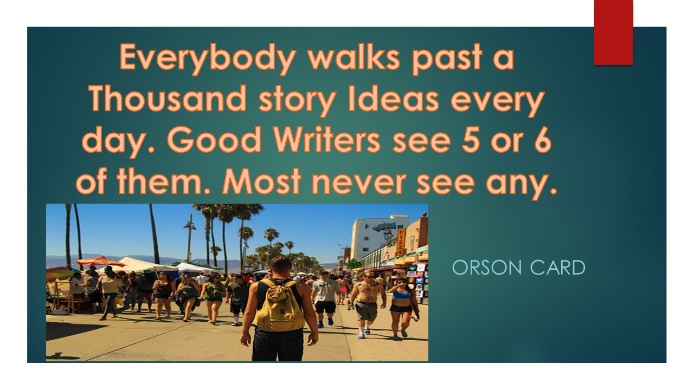
 18 Join a Group
18 Join a Group
If one partner isn’t enough, join a group of writers.
Find a writer’s club near you. Writers Relief has taken the time to curate writer’s groups for you the groups are listed by state and region.
writersrelief.com/writing-groups for-writers
Become a member of an online writers’ community.
Here are two great communities for writers:
19 Ask “What If” for Story Ideas
This hypothetical question will inspire many new ideas, and maybe a new way of thinking.
- What if the Nazis won the war?
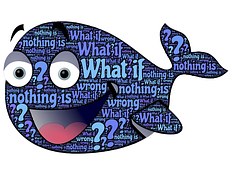 What if only women ruled the world?
What if only women ruled the world?- What if we lived in a world where no one could lie?
- What if the earth was ruled by apes? (oops, that’s already been done)
You get the idea. So many “what if’s” to explore. So many possibilities to think about and write about.
20. Quora
Quora.com is an online community, where you can ask questions. You could ask the “what if” questions from #19. I have seen several “what if” type questions, posed by writers. The answers were intriguing.
Quora is like brainstorming with the world.
 See if your question will spark a fabulous story idea.
See if your question will spark a fabulous story idea.
21. Think Of a Theme
Here’s a different approach. Think of something you’re passionate about. Research articles on the subject that interest you.
Consider writing a story designed to bring your reader’s attention to a problem you see.
Find help to write stories with a moral premise or theme at: www.moralpremise.com
22. Read Old Stuff for Story Ideas
This is an often-overlooked source for ideas. Read old blogs or emails that inspired you at the time.
John and I lived in the olden days when we wrote letters. We had a long-distance romance for four years. I love to reread his letters. John was very romantic. He still is.
This is a marvelous way to find ideas. It might also help you put artistry into your words.
23. Remember Your Childhood
Everything is so impossibly important to a child. Children live in the present.

Did you believe in fairies or superheroes? Try to remember your own age of innocence. Recall those over-the-top emotions.
Have you ever been trapped in a “but why” loop with a child? It’s enough to make you crazy. Kids possess a natural curiosity.
Want to know a secret; if you can recapture your childhood curiosity about everything, you will be able to write marvelous stories.
24. Turn Your Pain into Passion.
Let’s look at this possibility.
Sometimes writers shy away from writing about their pain. Truly great writing is not all fuzzy, warm, and cute. Real life is dirty and gritty.
Writers who capture those strong emotions become best-selling authors.
We all experience hurt or grief at a loss. Are you willing to walk into the flames and put those painful setbacks and disappointments on paper?
Why not write a story about your trial? Put the sting onto the paper.
Tell your audience how much it hurt. Maybe how afraid you were. Include how you survived. Did you come away stronger?
What a wonderful story idea. Turn your trial into triumph.
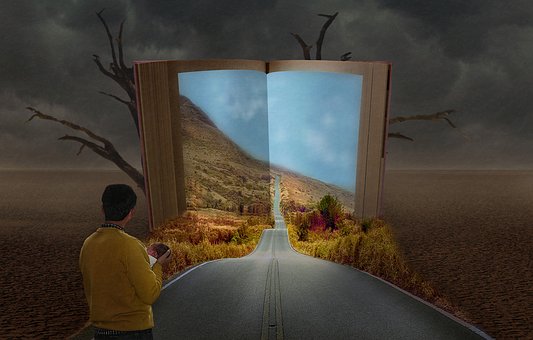 25. Read Historical Stories
25. Read Historical Stories
Why not take historical facts and reinvent them in a modern setting?
Maybe write a story using historical or technical data set in a science fiction, future setting? Put another way, you can make history repeat itself. You simply have to write it.
26. Use Writing Prompts for Story Ideas
This is an obvious solution to finding story ideas. Many sites on the Internet specialize in creative writing prompts.
So, if you are looking for inspiration consider these sites:
55 daily writing prompts for high school
thinkwritten.com-365-writing-prompts
27. Dream

The subconscious is a wonderful playground for ideas. Dreams are a treasure house of images, sounds, and feelings. Many of our best stories have come from dreams.
We keep a pad and pen by our bed. As soon as we wake, we take a few moments to try to remember our dreams. If something seems significant, we write it. Later we put it on our storyboard.
Download Creative Writing Storyboard, How to Quickly Start Your Own.

28. Imagine

Ignite the power of your imagination. Imagination is the ability to produce images ideas and sensations in your mind. Isn’t that what stories are made of?
You simply transfer those images, ideas, and sensations to paper.
Learn to imagine a scene as you write. What exactly does your character see? What are they thinking? What led up to the event? What will happen next?
Imagine yourself living in a different era. A different country? In a different family? What would life be like if you had made a different choice?
Imagine yourself as a famous author.
Yes, especially imagine this.
Keep reading, we have four more techniques, maybe one is the method for you.
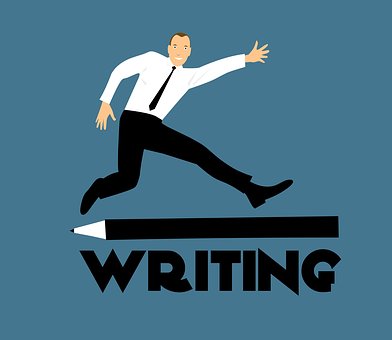 29. Free Writing
29. Free Writing
Many people find this technique is the cure for writer’s block.
Let me explain free writing is just that. Write whatever comes to mind. It is effective because you don’t have time to second-guess yourself.
Set a timer for five or 10 minutes. Then just write.
Don’t make corrections to grammar or spelling. Just write. Don’t judge what you have written.
I believe free writing is best done with pen and paper. But if you want to free write with a computer, follow these two rules: don’t take your fingers off the keyboard, and don’t slow down.
Put what you’ve written away. A day or two later you may find some interesting ideas have popped onto your pages.
You can choose a subject to free write about. Or you can try the next suggestion, mind mapping.
30. Mind Mapping for Story Ideas

Sometimes we need a boost to our imagination. Mind mapping is an easy way to pull ideas out of our own minds.
It is a kind of brainstorming. You start with the character, a word, or an idea. Then you branch out with whatever comes to mind, something you associate with the first word.
Then you choose one of those words and branch out again with words you associate with the second word.
Keep going one word after another.
Mind mapping allows your thoughts to naturally radiate into new areas.
For more about mind mapping see: www.mindmapping.com
 31 Meditate
31 Meditate
Let your mind wander. Relax, and let your ideas flow.
When you’re hunched over your computer it’s hard to think creatively. Go outside. Sit in the sun. Stare out the window at the rain.
Look at something blue or green. Research shows those colors enhance creativity. Maybe that’s why looking at the sky or water helps us think of more creative story ideas.
How awesome is that?
Now for our last suggestion of ways to find blockbuster story ideas.
 32. Music
32. Music
Make music an integral part of your creative process. Many songs tell stories. Use a song as a launching point for your plot, or character.
Music without words creates emotions and sometimes memories. Let those drive your stories.
Think about how you feel when you hear patriotic music or a love song. Write down your feelings.
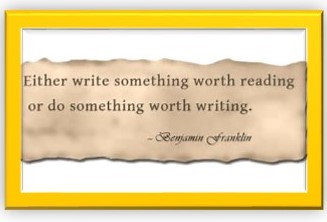
Use music when you write, to help you get in the mood of the scene you are working on.
Conclusion
There you have it, all 32 ways to create blockbuster story ideas.
Remember, creativity is a muscle. It must be exercised, stretched, and challenged.
The world is waiting. Your writing belongs to your readers. Your stories can help entertain, educate, and inspire your readers.
I want to encourage you to listen to the whisperings of your inner voice. Unleashed that story inside you.
Suddenly you may find an idea for a fantastic story. Stop, and write it down. It does not have to be complete. Nourish it. Allow it to grow and blossom.
So, get started. Only you can make it happen.
Happy Writing
John & Patty @writingagreatbook.com 2023

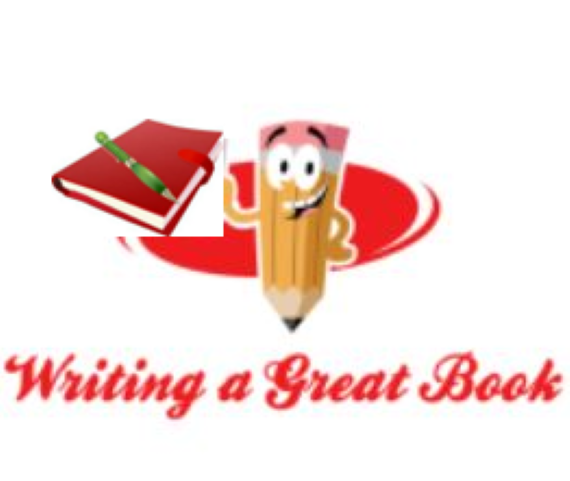
Leave a Reply